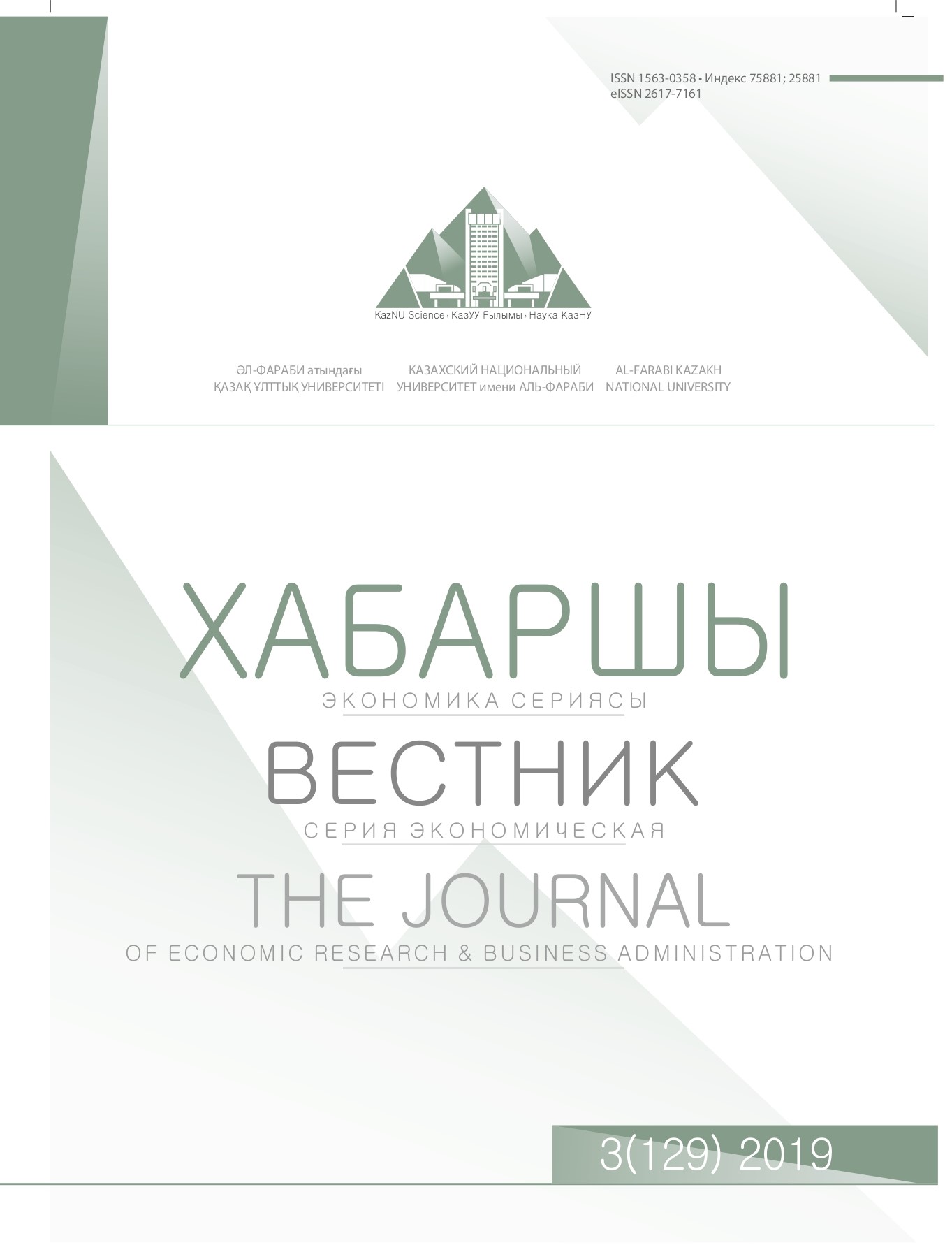INVESTING IN THE INTELLECTUAL POTENTIAL OF SOCIETY: THE EXAMPLE OF KAZAKHSTAN
DOI:
https://doi.org/10.26577/be-2019-3-e7Abstract
Intellectual capital is the most important component of the production assets of the organization operating in the post-industrial information society. The intellectual potential of the society is determined by the following main factors: the quality of the state socio-economic policy; the genetic fund of the population; the quality of the living environment (the level and quality of life of the population, ecology, political climate, etc.) of the population in general and its individual groups in particular; the level of health of the population; the level of development of the system of education and training of the younger generation; the quality of the mechanism of motivation of the population to creative work; the structure of society and the employed population; the level of culture and national consciousness of the population. Investments in intellectual potential play a major role in its development. This article analyzes the main factors affecting the development of the intellectual potential of society since the collapse of the Soviet Union. The main purpose of the study is to analyze and study the main factors affecting the growth of investment in the intellectual capital of the society. Research methodology includes such methods of study of economic phenomena and processes: economic and statistical analysis. The results of the study will allow to study the successful experience, as well as to identify problem areas in the financing of the intellectual potential of society. The scientific and practical significance of the work lies in the fact that its main conclusions and recommendations can be used to develop effective strategies and tactical instruments of innovation policy.













